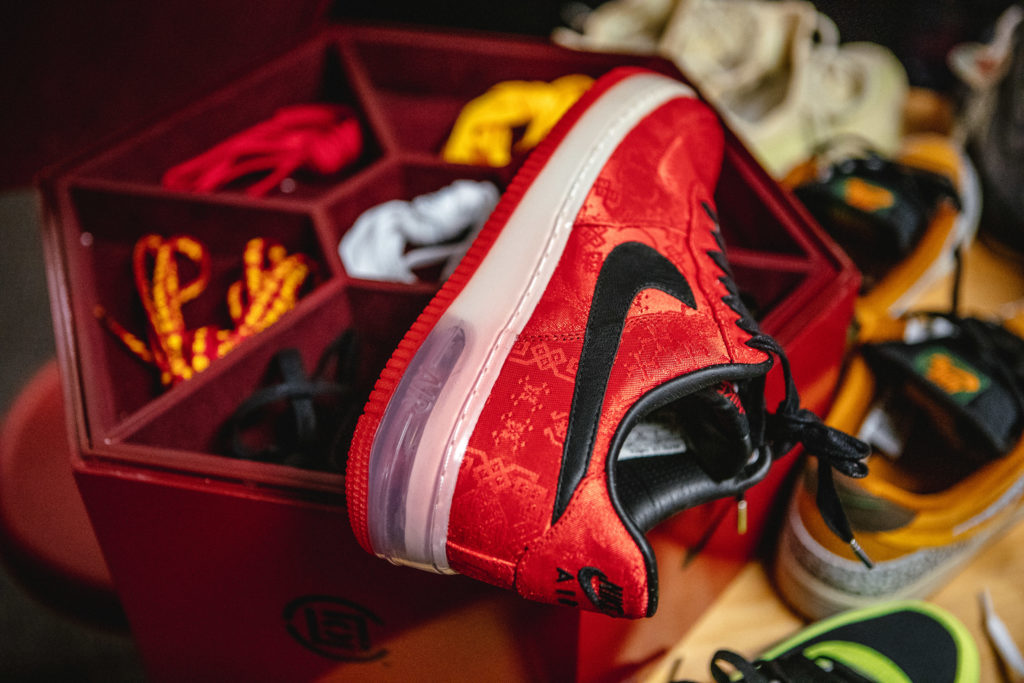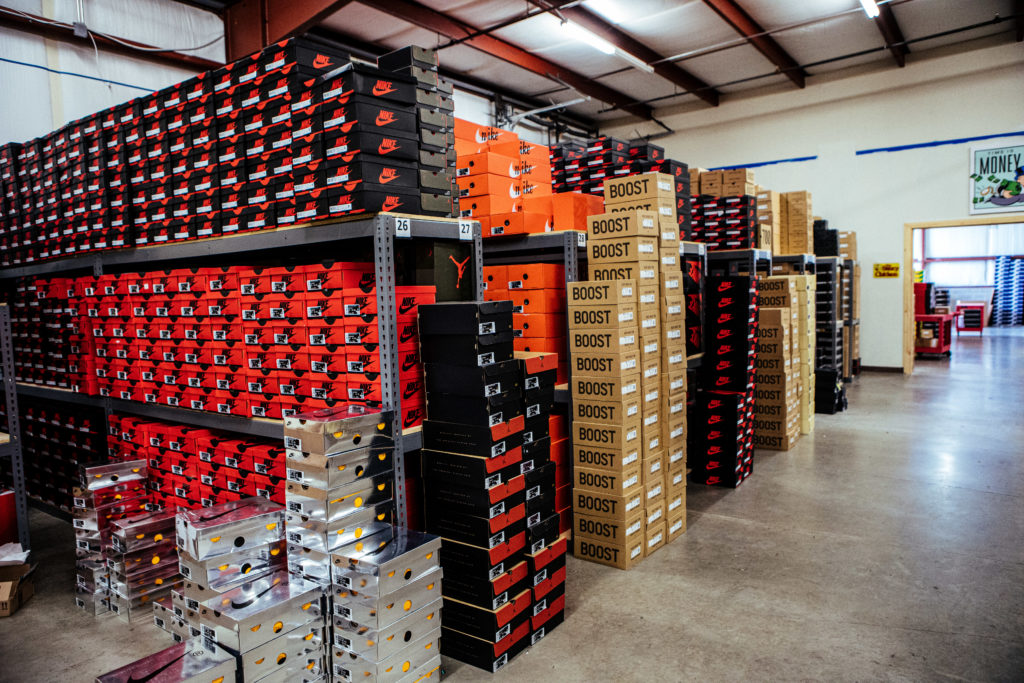Too Hype to Fail
Wolf of Wall Street, a film by Martin Scorsese, tells the story of a stockbroker who strikes it rich by defrauding wealthy investors out of millions — and then gets busted by federal agents. A poster of Leonardo DiCaprio in Wolf of Wall Street hung on the office wall of Eugene-based sneaker reselling company Zadeh Kicks, owner Michael Malekzadeh.
It’s a story that has become relevant for Zadeh Kicks in 2022.
The high-end sneaker reselling business plan was similar to speculative stock trading, with razor-thin profits, as owner Malekzadeh described to Eugene Weekly in an interview before the start of the COVID-19 pandemic. Zadeh Kicks is in the midst of filing for insolvency, as Malekzadeh cites an inability to pay debts, according to court documents. And according to an email sent by Zadeh Kicks to its email subscribers, it is being investigated by the FBI, though the agency tells EW it won’t discuss whether there is an investigation.
The Zadeh Kicks business acted as a middleman for customers who missed out on limited releases for high-end and rare sneakers. The official way to get such kicks is through a lottery system organized by the company (Nike and Adidas, for example) or store (Footlocker or Champs). But buying shoes through a reseller means paying a steep price for the footwear, far more than the original retail price. It’s more expensive than through Nike or Adidas, where they can cost around $120 to $220.
Through resellers, individual sneakers can be as high as $1,000.

In March 2020, EW visited the sneaker warehouse in west Eugene. Malekzadeh’s personal sneaker collection in his office numbered in the hundreds, with rare University of Oregon player-exclusive models, as well as sneaker collaborations with high-end fashion companies. Some of the individual sneakers, he told EW, were worth thousands of dollars.
Malekzadeh told EW that he had previously worked for Nike in the early 2010s, but was fired for violating the company’s policy on reselling sneakers. Years later, after establishing Zadeh Kicks, he said his business plan was focused on selling large quantities of sneakers to other resellers at a lower wholesale price, though still higher than the shoe company’s retail price. But he would sell orders to individuals, just at a much higher per unit price than the wholesale sales. Malekzadeh is also an owner of Eugreen Farms, according to a filing with the Oregon Secretary of State office.
“Take care of as many people as we can, keep a small amount and sell that at a high price to the people who don’t care, or if you think about a shoe a year too late, you’re going to have to pay more money for it,” he said. Malekzadeh wouldn’t divulge the process of how he secures his supply, but he hinted at having relationships with suppliers who delivered to him instead of retail stores.
His business has always had razor-thin profits, he said. And to make a lot of money in an order, he had to find ways to secure the so-called “hyped” releases, sneakers that are sold in small batches, sometimes designed by a celebrity, such as Kanye West or Drake. The only way to get those sneakers is through lotteries organized by the company that’s selling it. That’s where he said Zadeh Kicks had a stock market-style speculation, he added.
“You will win some and you will lose some. You have to be OK with it,” he said. Sometimes, the hyped shoe may not immediately return high prices, so he added you can always hold onto the product — much like stock — and hope its value increases as the supply dwindles. But the danger of a consumer’s lost interest may mean the shoe becomes irrelevant.

Rather than going all in on what could be hyped releases, he said he makes sure to have plenty of the “safest” sneaker option. The safest investment — a constant — is the Jordan brand of shoes, a wholly owned subsidiary of Nike. It’s the most popular shoe that he sells. “I sell probably 50 times more Jordans than anything else,” he added, though the profit margin is slimmer because of the large supply. “The retail price may be $190, but I’m selling it for $220.”
Two years later, Zadeh Kicks’ revenue has been unable to keep up with its exponential growth, according to May 19 court documents filed by the company. To repay its debts, the company is attempting to liquidate its assets, including merchandise, through a third party.
“It is unquestionable that Zadeh Kicks is insolvent,” according to the documents. “Preliminary estimates put the deficit at millions of dollars,” they continue. “Given this situation, Zadeh Kicks is unable to pay its debts as they become due in the usual course of business.”
Zadeh Kicks has also not shipped orders to customers, according to posts on social media. From sneakerhead accounts on Twitter and Reddit, disgruntled customers have reported losing thousands of dollars in undelivered products.
Since shutting down, the Eugene Police Department have been called for suspicious conditions or subjects, police spokesperson Melinda McLaughlin says. But when EPD arrives, they haven’t located anyone.
Although the FBI isn’t commenting on whether it has an investigation, the agency does advise anyone who may have an unfulfilled order that amounts to a large amount of money of Zadeh Kicks to contact them at Tips.Fbi.Gov or 1-800-CALL-FBI.